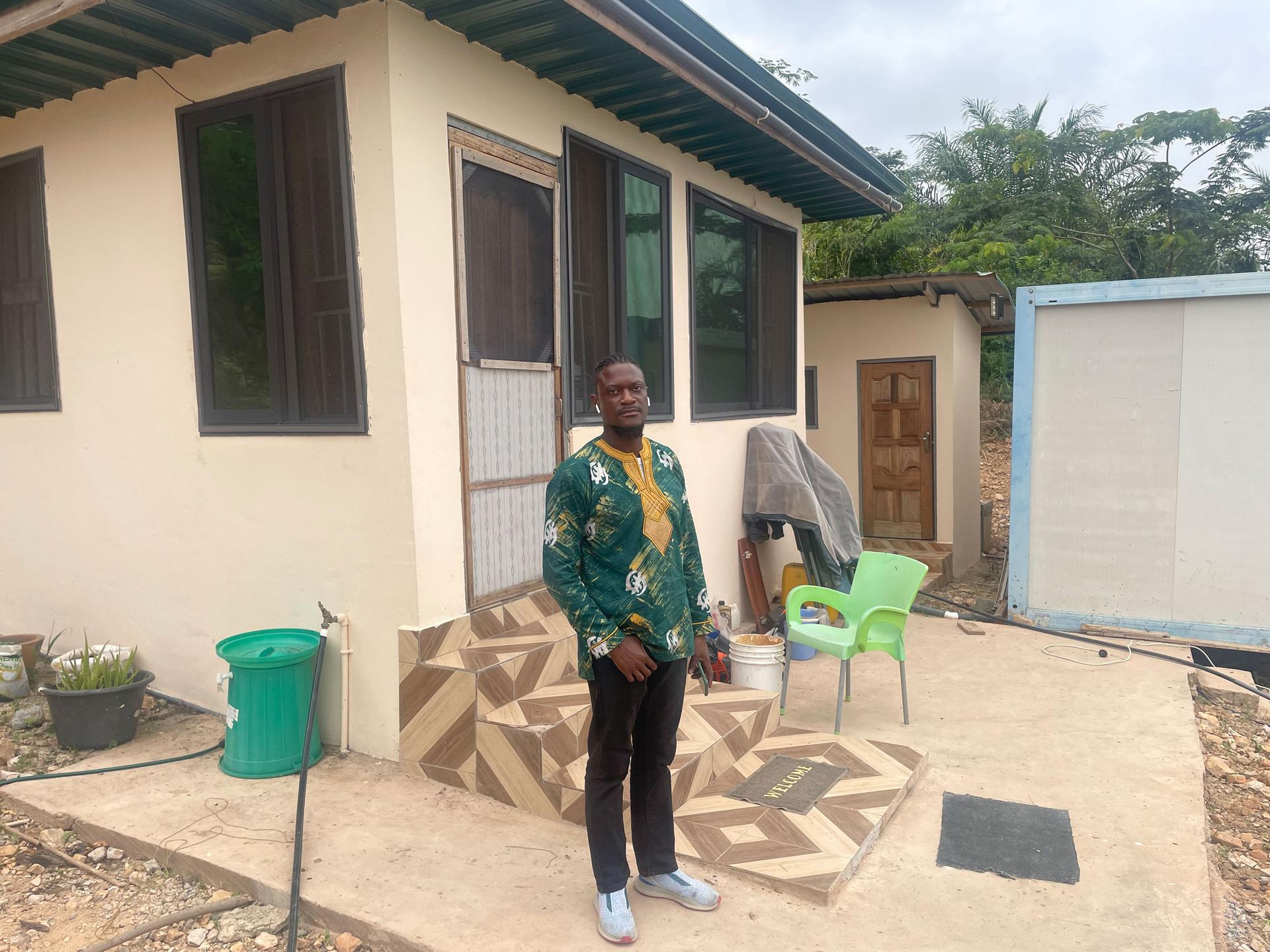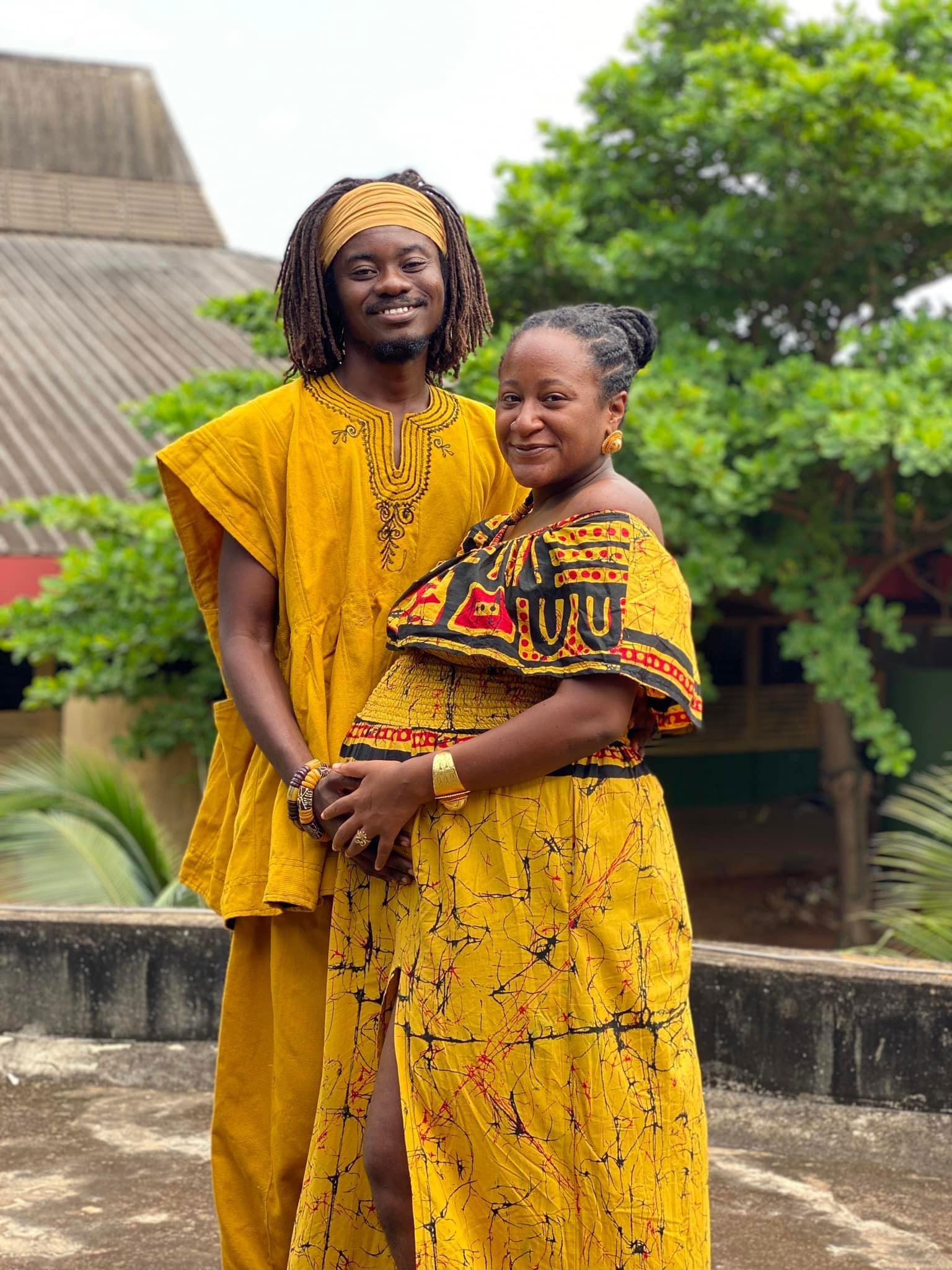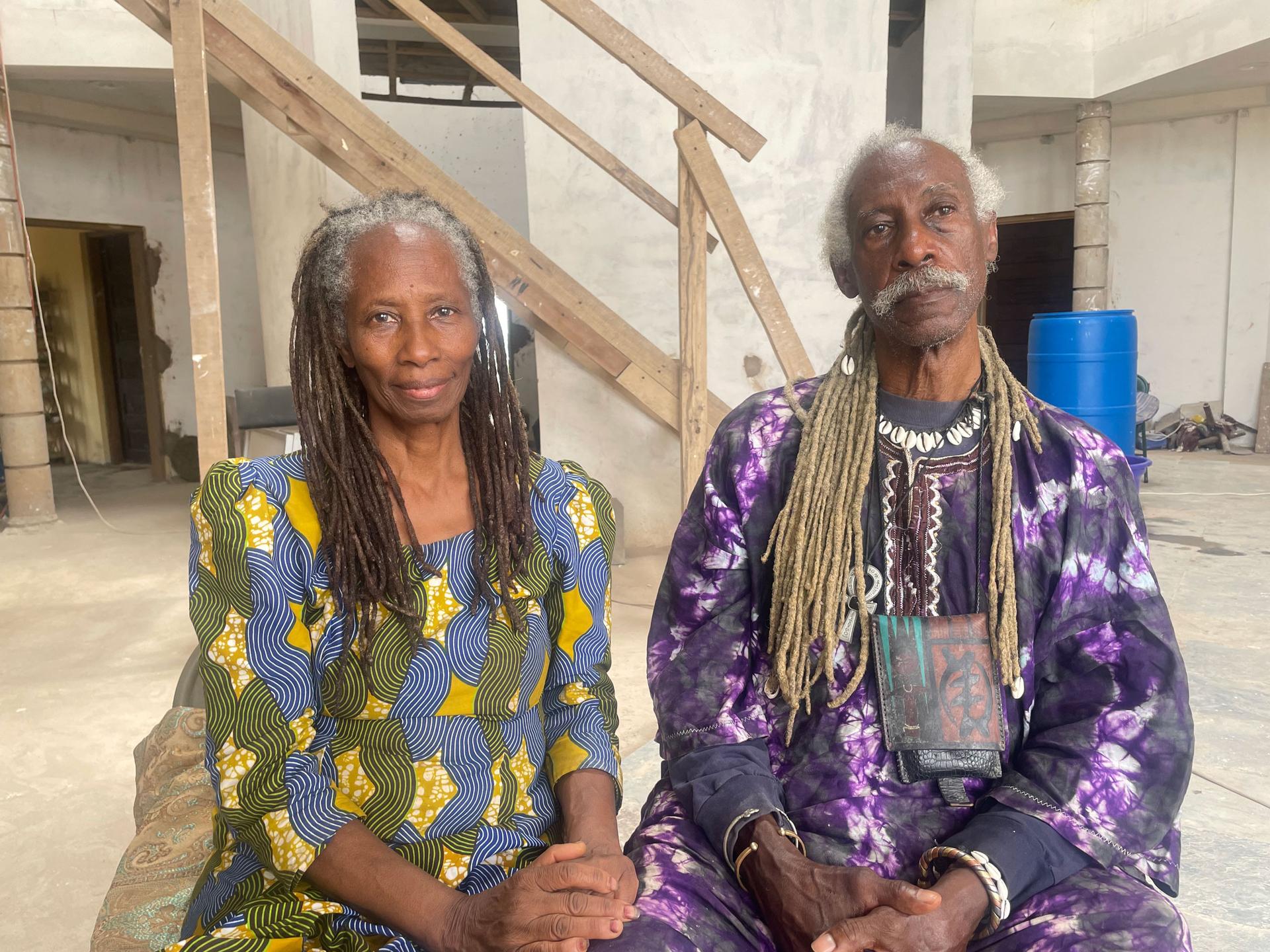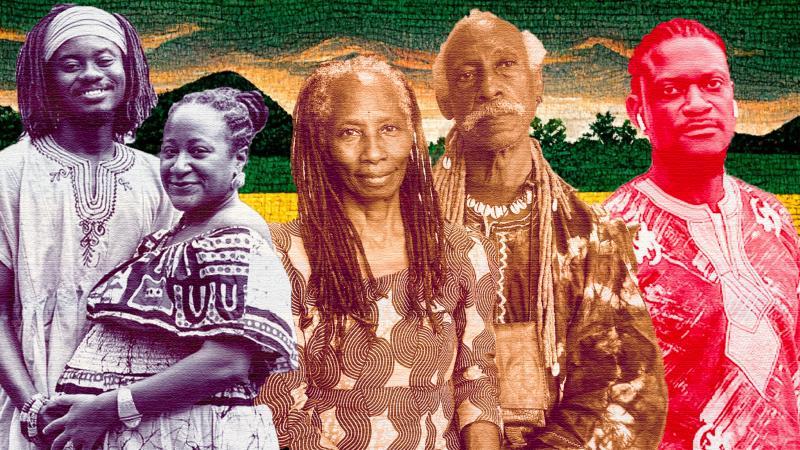Near the town of Akuapem-Mampong in southern Ghana, Kwaku Asantu Maroon Asare lives in a one-bedroom house. In this thick, vast stretch of forest atop a hill, it’s the only house around.
Maroon, born in the United States, now calls Ghana home after moving from Florida to settle permanently a year ago.
He made the decision to relocate to Ghana after the killing of George Floyd, a Black man, by a white police officer in Minnesota. Many other Black Americans have been killed in incidents of police brutality in recent years.
“The last straw for me was George Floyd. So, what I [saw] as anomalies was just normal for the system. So, at that point I told myself that I will leave and I will go where the system is different,” he said.
Maroon is one of hundreds of Black Americans who heeded Ghana’s call to Africans in the diaspora to return home to Africa. The 2019 “Year of Return” initiative marked 400 years since the first documented ship carrying enslaved people from Africa landed in Virginia.

Since the 42-year old moved to Ghana, he said he’s noticed a huge difference in terms of race.
“When you arrive in Ghana, and you get off that plane, and you don’t see [any] white people, indeed, you tell yourself, ‘This is where I should be, a place where the people look like me.’ Even if you don’t know the people, you still feel the connection,” he said.
Maroon’s quest to settle in Africa began years ago when he traced his ancestral roots through the genetic test “23andMe,” revealing that his ancestors came from Nigeria and Ghana. It piqued his interest, he said.
To reflect his African identity, he changed his name to Asantu Kwaku Maroon Asare. He said the name is more historically accurate than his name given at birth.
Maroon has found work as an entrepreneur in Ghana, exporting Ghanaian products to people in the US.
He hopes to “give birth to the next Kwame Nkrumahs and the next Marcus Garveys,” he said, referring to the Pan-African revolutionary thinkers and leaders.
‘Beyond the return’
At least 1,500 Black Americans have moved to Ghana since the Year of Return was declared.
Celebrities including comedian Steve Harvey, actors Danny Glover and Boris Kodjoe, supermodel Naomi Campbell, and musicians T.I. and Ludacris, have all visited Ghana and encouraged the African diaspora to follow.
The government said the campaign has injected about $1.9 billion into the economy.
As the US continues to confront its history of racism and police brutality against Black people, many are making the decision to move to Ghana.
According to a recent United Nations human rights report, people of African descent continue to face racism, racial discrimination, xenophobia, intolerance and excessive use of force by law enforcement agencies.
On the heels of its success with the “Year of Return,” the government has initiated a program called “Beyond the Return,” a 10-year project under the theme “A Decade of African Renaissance -2020-2030,” to encourage further engagement between Ghana and Africans in the diaspora.
But connections between Black Americans and Ghana date back in history. Civil Rights leader Martin Luther King Jr. traveled to Ghana to celebrate Ghana’s defeat of colonization. Activist Malcolm X and writer Maya Angelou worked in Ghana during the presidency of revolutionary leader Kwame Nkrumah. American sociologist William Edward Burghardt Du Bois died in Ghana as a Ghanaian national. Today, the W.E.B. Du Bois Memorial Center for Pan-African Culture in Accra honors his legacy.
The government of Ghana is betting on Africans in diaspora who relocate to help steer development and bring new skills, talents and American-style entrepreneurialism.
Two years ago, the government said it would allocate about 500 acres of land for Black Americans moving to Ghana. It also agreed to facilitate citizenship for those who wish to become Ghanaians.
But many, like Maroon, are moving even without these kinds of incentives.
‘An abundance and glorious people’
Yeleyeni Songsore, a 28-year-old poet and writer, lives in Tutu, another small town in southern Ghana.
Songsore, born and raised in Baltimore, Maryland, is now a permanent Ghanaian resident. And she also changed her name.
“Since I have come to Ghana, they’ve renamed me Yeleyeni, which is a name from the north and it means, ‘Speak once.’ So, the importance of being brief, of being proverbial and of being very important when you speak,” she explained.

Songsore has been living in Ghana for 1 1/2 years and works remotely for a company in Ghana as an administrative assistant.
She not only found a home, but also love. She married a Ghanaian and is now pregnant with their first daughter.
Songsore said the thought of having a child in Ghana gives her enormous joy. She imagines her child having a stronger sense of identity living in a country where natural hair and skin are considered beautiful and where her child can feel that she comes from “an abundance and glorious people,” she said.
Songsore said she also experienced a lot of racism and trauma in the US – going back to her high school history class, where they omitted African history and told her that her history began from slavery.
“When I started to really realize that I was being lied to, which was probably around when I was 18 or 19 years old — I’m 28 now — I realized that wow, this history is not true,” she said.
A series of deadly incidents of police brutality against Black Americans in the last decade got her thinking about where to relocate.
“Some of us were like, ‘No, I’m not going to stay here and be oppressed and be subjected to this. I’m worth more than that, I deserve and I have a vision of something greater that I can do,’” she said.
But Ghana also has its own challenges.
The country continues to struggle with corruption and an ailing economy. The local cedi currency has dropped more than 38% this year, making it the worst-performing currency after Sri Lanka’s rupee, among 150 economies tracked by Bloomberg.
High inflation, COVID-19 challenges, and the war in Ukraine have also worsened Ghana’s already stretched finances, necessitating talks with the International Monetary Fund for a bailout.
Related: ‘The country is on its knees’: Ghana seeks IMF bailout amid economic woes, teachers’ strike
In Tema, a suburb of Accra, Ghanaian trader David Owusu said the government should make living conditions better so that Black Americans have an easier time setting up a new life in Ghana.
“If someone wants to come and invest and realizes that the local currency keeps depreciating, the person will think twice,” he said.
Songsore recognizes that Africa has its struggles that are connected to its history, she said, but that working together for a greater vision is possible.
“Being in America, you are only going to be able to be tolerated. And that’s not the vision, I don’t think, that a people should have of themselves — being in a place where you are tolerated only. The vision is for our people to be free, and independent and to have control and be self-sufficient over themselves,” she said.
Songsore is also optimistic that as more Black people leave the US to settle in African countries like Ghana, it could also help speed up the development of the continent.
Intent and vision
Mawiyah Kambon, 75, moved from North Carolina to settle permanently in Ghana about eight months ago.
She also acknowledges that there are issues like corruption and ethnic prejudice in Ghana, but that everywhere she turned, there were Black people doing everything.
“And so, mine was not a ‘last straw.’ Mine was the intent to come,” she said.

Mawiyah Kambon visited Ghana a couple of times in the 1970s. But this time, she came with Kamal Kambon, her husband of over 40 years.
Mawiyah Kambon said the relocation of many Black Americans like herself is sending a strong message to the United States that the world is changing.
“This is no longer going to be a world for imperialists. It’s the Black man’s time. And we are rising all over the globe. And so, wherever we are, we are going to be great,” she said.
Songsore, the poet, also has a word of advice for anyone planning to settle in Ghana: “It is not just about wanting to escape America, but it should also be about how you want to build Africa.”
An earlier version of this story was published by the podcast, “To The Best Of Our Knowledge.”
The story you just read is accessible and free to all because thousands of listeners and readers contribute to our nonprofit newsroom. We go deep to bring you the human-centered international reporting that you know you can trust. To do this work and to do it well, we rely on the support of our listeners. If you appreciated our coverage this year, if there was a story that made you pause or a song that moved you, would you consider making a gift to sustain our work through 2024 and beyond?
